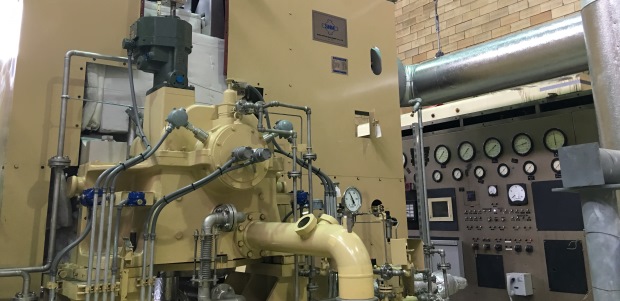
Veolia Completes 'Green Steam' Project
"This project is a win for the environment and the communities of Cambridge and Boston. Ending the discharge of heated water to the Charles River will help protect fish, restore habitat, and reduce the severity of cyanobacteria blooms," said Charles River Watershed Association Executive Director Robert Zimmerman, Jr.
Infrastructure improvements at Kendall Cogeneration Station to eliminate thermal pollution to the Charles River mean that Veolia's Boston-Cambridge "Green Steam" project, a multimillion-dollar investment that has improved energy reliability and air quality while reducing the region's carbon footprint, has been completed, the company announced this week.
"Through a close collaboration with government, environmental organizations, local citizens, and industry, this significant environmental milestone was made possible," said William J. DiCroce, president and CEO of Veolia North America. "The completion of upgrades at Kendall Cogeneration Station helps to protect the Charles River – a local treasure and national landmark – and supports Veolia's mission to deliver clean energy while reducing the carbon footprint of Boston and Cambridge."
Operated by Veolia and acquired with joint venture partner I Squared Capital in 2014, the Kendall Station Combined Heat and Power plant produces electricity and recycles thermal energy used to supply Veolia's 20-mile steam distribution system. Through its efficient plant operation, combined with a 7,000-foot steam pipeline extension completed in 2013, Veolia has doubled its transport of environmentally friendly thermal energy ("Green Steam") to Cambridge and Boston metro customers via recovered heat; in October 2016, Veolia's $112 million dollar "Green Steam" infrastructure investment culminated with the completion of a retrofit of Kendall Station, replacing the plant's original once-through cooling system design with an Air Cooled Condenser. Kendall Station now leverages ambient air for use in its thermal cycle instead of Charles River water.
According to Veolia, this effort began nearly 20 years ago when the Charles River Watershed Association and the Conservation Law Foundation fought to eliminate the plant's environmental impact on the Charles River. The partnership resulted in a 2011 Administrative Order from EPA calling for a 95 percent reduction in cooling water and discharge flow to the river. "This project is a win for the environment and the communities of Cambridge and Boston. Ending the discharge of heated water to the Charles River will help protect fish, restore habitat, and reduce the severity of cyanobacteria blooms," said Charles River Watershed Association Executive Director Robert Zimmerman, Jr. "Green Steam further protects the environment with reduced greenhouse gas emissions and improved air quality. Charles River Watershed Association is honored to have worked with Veolia, Kendall Cogeneration Station, the Conservation Law Foundation, and other partners to forge this creative solution to the heat pollution that has plagued the Charles River."
"The success of Kendall Station is proof that energy production, environmental protection, and economic prosperity need not be competing forces," said Veronica Eady, director of Conservation Law Foundation Massachusetts. "This project offers a model that can be replicated around the nation — a blueprint for how to use, and even profit from, heated water from a plant rather than dumping it back into already imperiled fish habitats."